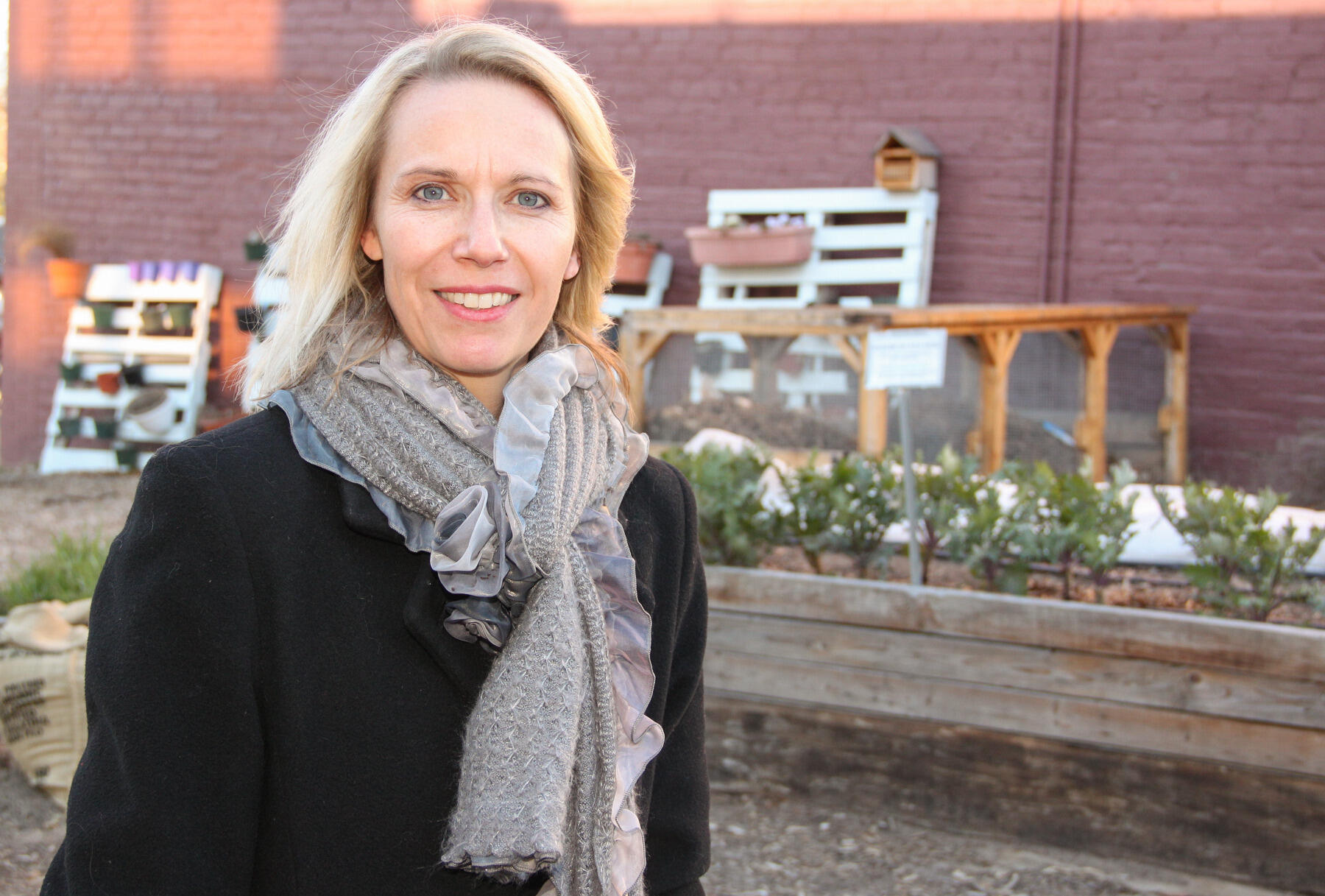
May 23, 2017
Summer course digs into gardening, food policy during World War II
Share this story
Next month, Virginia Commonwealth University students will learn about food policy during World War II, and tend a Victory Garden in the Monroe Park Campus Learning Garden.
Emilie Raymond, Ph.D., assistant professor in the College of Humanities and Sciences’ Department of History, will lead the special topics summer class. Victory Gardens were home gardens planted to offset food rationing required as American resources poured into the unprecedented war effort. They sprouted in urban, suburban and rural communities.

Photo by Pat Kane, University Public Affairs
“During the war, 20 million people had Victory Gardens. A lot of them had never gardened before, so they needed to learn,” Raymond said. “It will be worthwhile for the students to experience what that was like, learning the variety of things one has to do to have a successful garden.”
After reading “Last Child in the Woods” by Robert Louv, Raymond considered the author’s argument that the loss of unstructured outdoor time for children is hurting society. Raymond wondered how she could get her own students out in the sun.
“I had this percolating in my head, but I thought, ‘Where would I even have the garden?’” said Raymond. “Last year, I saw that VCU started this learning garden and I was really excited.”
Erin Stanforth, director of sustainability, said the class aligns with the vision of the learning garden. In the past, the garden has been a site for service learning and one-off lessons. This is the first time the garden has been woven in to a semester-long class, Stanforth said.
“It’s turning that space into a true living lab,” she said.
The class will cover topics including food policies, rationing, gardening and propaganda.
“People didn’t just spontaneously plant Victory Gardens; they had to be prodded and educated into it. Understanding the deprivation and the hardship on the home front, it’s hard for people to grasp that,” Raymond said. “People tend to have a romanticized view of World War II in comparison to our later wars like Vietnam and our Middle Eastern conflicts. This is an opportunity to get a more realistic view of what was going on.”
Students will also consider that when Axis countries planted their flags overseas, natural resources and agricultural were front of mind.
“When Germany and Japan were trying to expand, what was their purpose in expanding? A lot of it was so their home nations could be industrial, where the areas they expanded into could be agricultural areas. Food was impacting and motivating them to expand and brought them to war,” Raymond said.
Outdoors, students will tend summer crops and complete a project to support the learning garden. Research projects will be part of the course as well. Focusing on such recent history has advantages, Raymond said.
“I feel like if you’re teaching recent American history, you really have an opportunity to talk to people from that time period,” she said. “One of the great things about history is that it helps students think beyond their own generation, and therefore allows them to communicate and connect with others in an important way.”
<slideshow id=161 align=center width=550>
Subscribe for free to the VCU News email newsletter at http://newsletter.news.vcu.edu/ and receive a selection of stories, videos, photos, news clips and event listings in your inbox every Monday and Thursday.
Subscribe to VCU News
Subscribe to VCU News at newsletter.vcu.edu and receive a selection of stories, videos, photos, news clips and event listings in your inbox.










